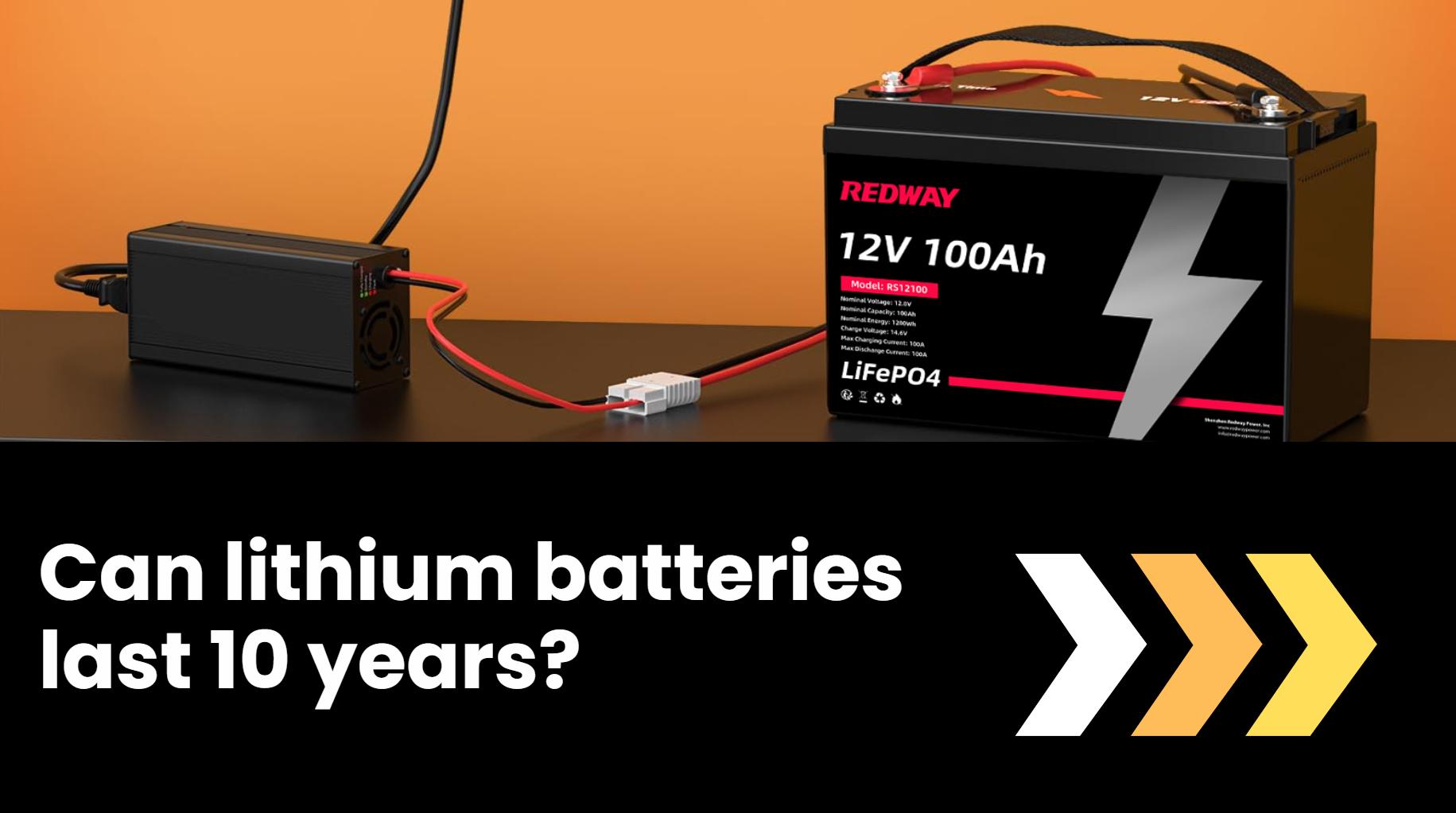Yes, lithium batteries can last up to 10 years or more, depending on various factors such as usage patterns, charging habits, and environmental conditions. Lithium Iron Phosphate (LiFePO4) batteries, in particular, are known for their longevity and can endure thousands of charge cycles, making them a reliable choice for applications like electric vehicles, solar energy storage, and portable electronics.
Understanding Lithium Battery Lifespan
1. Factors Influencing Lifespan
The lifespan of lithium batteries is influenced by several key factors:
- Depth of Discharge (DoD): Regularly discharging a battery to its full capacity can shorten its lifespan. Maintaining a higher state of charge can help extend its life.
- Temperature: Extreme temperatures can negatively impact battery performance. Ideally, lithium batteries should be kept in a temperature range of 20°C to 25°C (68°F to 77°F).
- Charging Practices: Using the correct charger and avoiding overcharging can significantly enhance battery longevity.
2. Types of Lithium Batteries
Different types of lithium batteries have varying lifespans:
- Lithium-Ion Batteries: Common in consumer electronics, they typically last around 500 to 1500 cycles.
- Lithium Iron Phosphate (LiFePO4) Batteries: Known for their stability and safety, they can last over 4000 cycles, making them ideal for applications requiring long-term reliability.
Comparison of Lithium Battery Lifespan
| Battery Type | Typical Lifespan (Cycles) | Expected Years |
|---|---|---|
| Lithium-Ion | 500 – 1500 cycles | 2 – 5 years |
| Lithium Iron Phosphate | 4000+ cycles | 10+ years |
Latest News
Recent advancements in lithium battery technology continue to enhance their longevity and efficiency:
- Major manufacturers are investing in research to improve the lifespan of lithium batteries through advanced chemistries and materials.
- The development of solid-state batteries promises even longer lifespans and improved safety features.
- Increased focus on recycling methods aims to reduce environmental impact while maintaining the performance of lithium batteries.
Redway Expert Comment
“As experts in lithium LiFePO4 technology at AAA Battery, we understand that the longevity of lithium batteries is one of their most appealing features. Our LiFePO4 batteries are designed to last over 10 years with proper care and usage. This makes them an excellent investment for anyone looking for reliable power solutions in applications like solar energy storage or electric vehicles.”
Best Practices for Extending Battery Life
1. Optimal Charging Habits
To maximize the lifespan of your lithium battery, consider the following charging practices:
- Use a charger specifically designed for lithium technology.
- Avoid letting the battery discharge completely before recharging; aim to keep it above 20% charge.
2. Temperature Control
Store and operate your lithium batteries within the recommended temperature range. Avoid exposing them to extreme heat or cold, which can degrade performance over time.
3. Regular Maintenance
Perform regular checks on your battery’s health, including monitoring its voltage and capacity. This proactive approach can help identify issues before they lead to significant degradation.
Conclusion: Can Lithium Batteries Last 10 Years?
In summary, lithium batteries, particularly those utilizing LiFePO4 technology, have the potential to last up to 10 years or more with proper care and usage. Their longevity makes them a reliable choice for various applications, including electric vehicles, RVs, and renewable energy systems.By adopting best practices in charging and maintenance, users can ensure that their lithium batteries perform optimally throughout their lifespan. As advancements in technology continue to emerge, we can expect even greater improvements in battery longevity and efficiency.




